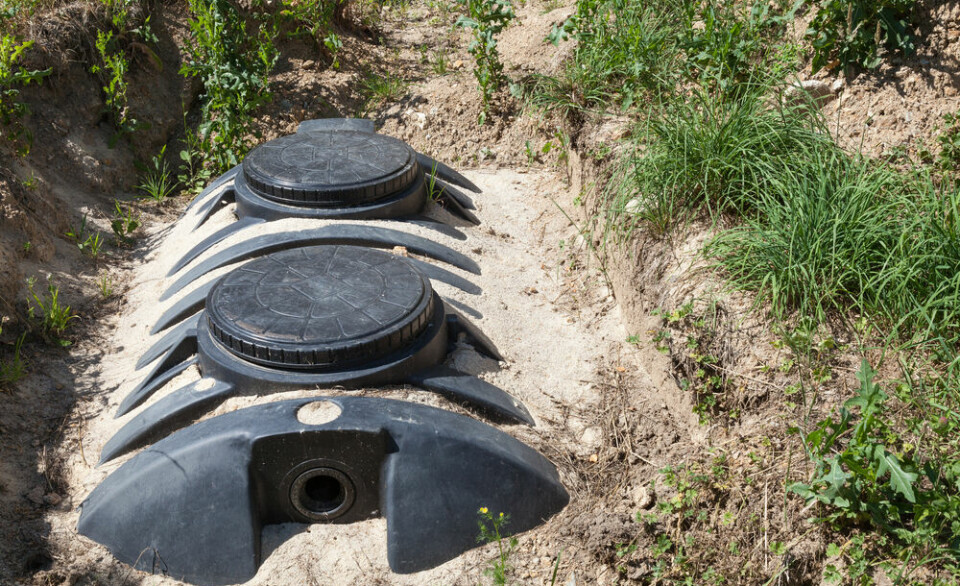-
Camping holidays becoming more popular in France despite challenges
Foreign tourists are driving positive results as people in France tighten budgets
-
Americans moving to France are increasingly choosing Nice
Expat numbers are soaring alongside a boom in US tourism in the city
-
Drivers in France: Look out for this new road sign
The sign aims to encourage more environmentally-friendly driving and road usage practices
Health crisis: New residence permits for healthcare workers in France?
A new carte de séjour category will be considered by parliament as part of the government’s immigration bill, in a bid to help recruit hospital staff

France’s government has said it wants to create a new residence permit (carte de séjour) for healthcare professionals, in a bid to attract workers from abroad and respond to “recruitment needs”.
The sector is “in difficulty”, said the legal bill, which was seen by the AFP on December 20.
The visa would be multi-year and officially called the carte ‘talent - professions médicales et de pharmacie’. It would be available for doctors “whatever their specialty”, midwives, dentists and pharmacists, said the Conseil d’Etat in a statement this week.
It comes after Health Minister François Braun said that the healthcare sector is suffering from a shortage of personnel, especially in hospitals. Beds are still closed due to a “lack of carers”, he told FranceInfo on December 13.
In rural areas, the problem of ‘medical deserts’ is worsening. More than 1.7 million people in France are considered to live very far from a GP. The waiting list for a specialist is even longer, at several months. Similarly, a very significant number live 30 minutes drive or more from their nearest specialist.
Jean-Paul Chapel, an economy journalist, reported: “In total, 41 million people are affected by this, which is almost two-thirds of the French population.”
Read more: Eight facts to understand France’s issue of ‘medical deserts’
Read more: French ‘medical deserts’: Mayor’s plea over lack of rural GPs
The healthcare worker titre de séjour will be part of that plan to create a carte de séjour for ‘métiers en tension’ (professions under pressure).
The statement said: “This visa is intended to meet the need to recruit qualified health personnel in medical or socio-medical settings,” particularly as these foreign practitioners cannot currently always be hired due to a “lack of a residence permit that fully meets the specific nature of these situations.”
Immigration law
The will form part of the existing ‘talent visa’ scheme, and wider legislation on immigration.
At the start of December, President Emmanuel Macron said that the country needed to show “firmness and humanity” on the issue.
Read more: Explainer: what is France’s ‘talent’ visa and who can get one?
The law is set to be presented to the Conseil des ministres (Cabinet) in January, then examined in the Senate and the Assemblée nationale at the start of 2023.
The 25-article bill is expected to contain measures designed to make it easier to expel foreign criminals, and make it easier for legal immigrants to integrate better.
Interior Minister Gérald Darmanin and Work Minister Olivier Dussopt said to Le Figaro this week that the text is “balanced and ambitious, and accepts the challenge of looking things in the eye, with pragmatism and realism”.
He said: “Our bill is very firm and breaks with a certain number of ‘laissez-faire’ habits. Everything will be examined on a case-by-case basis.”
Other measures set to be proposed include fines of €4,000 for employing an undocumented person (up to €8,000 in case of a repeated offence within two years), and the expulsion of people judged to have committed serious offences.
To keep a visa, holders will also be required to show that they “respect the principles of the Republic”.
The text includes: “The principles of the Republic include freedom of expression and conscience, equality between citizens, especially equality between men and women; freedom of sexual orientation, the dignity of human beings, and the symbols of the Republic.”
It also states that people cannot “use one's beliefs or convictions to circumvent the common rules governing relations between public services and individuals".
Related articles
French mayors’ ideas to solve rural doctor shortages 'taken seriously'
Language test, new residence permit: ministers share immigration plans
What is a OQTF order to leave France?
























